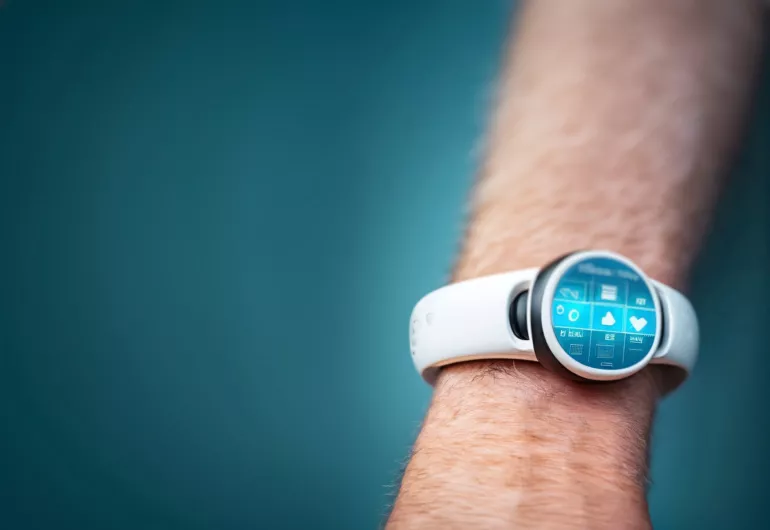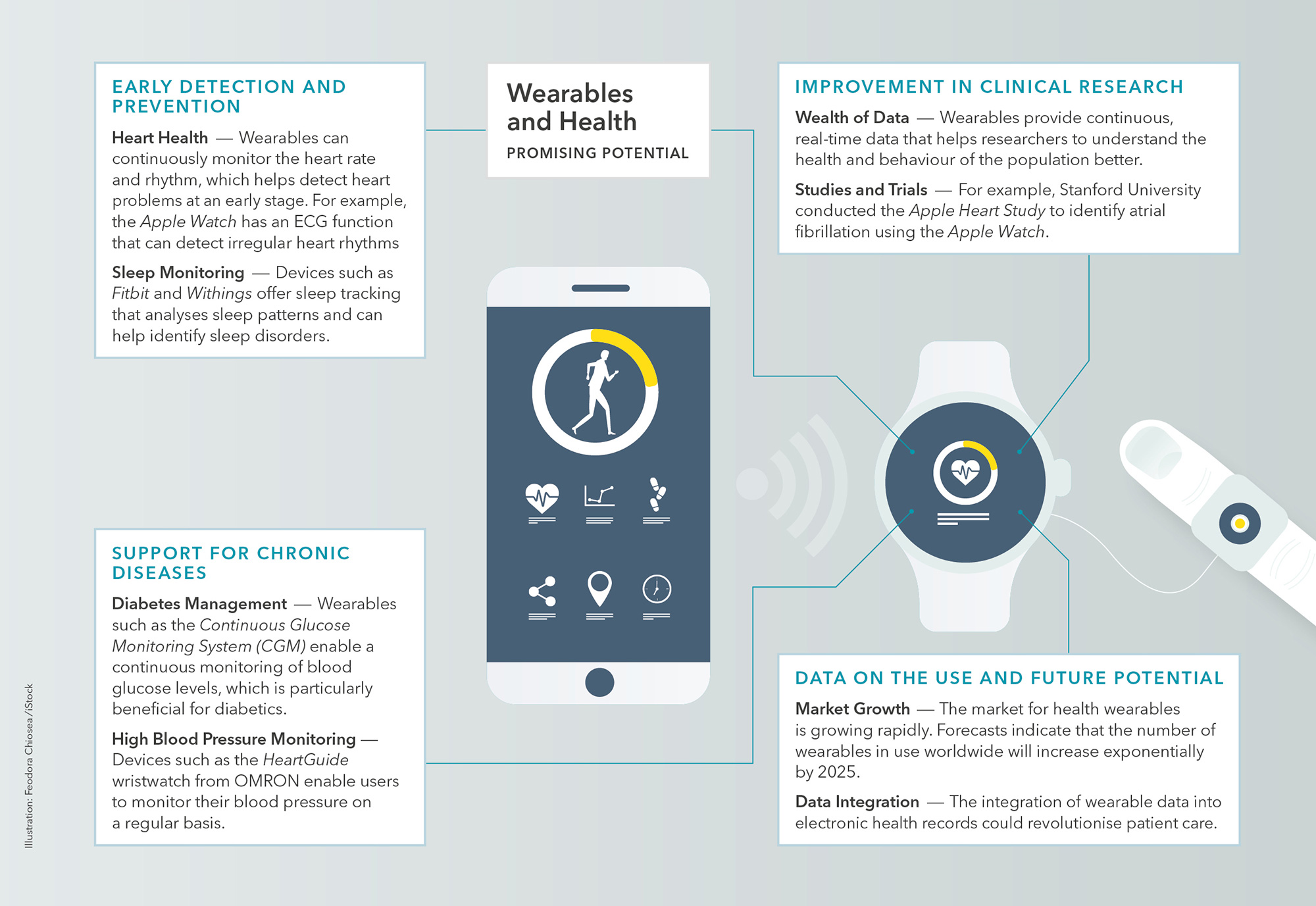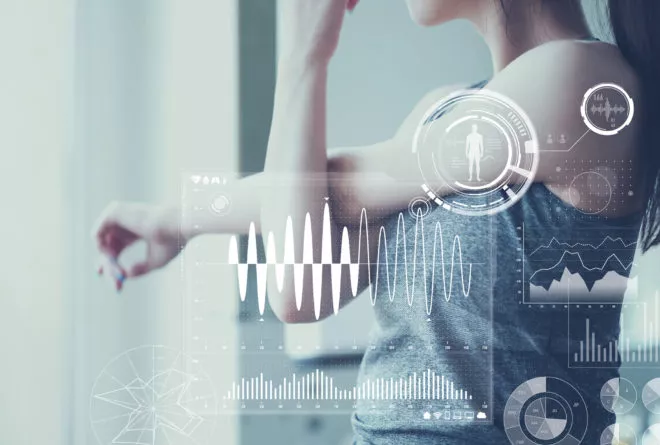News & Trends
Doctor on Your Wrist

MANY PEOPLE USE FITNESS TRACKERS to count their steps or measure their heart rate during exercise. The potential of the data collected is huge, both for us personally and for the healthcare system as a whole.
Smartwatches, fitness trackers and smartphones will revolutionise the healthcare sector. Various experts agree on this. Wearable health technology can detect serious conditions such as atrial fibrillation or Parkinson’s disease much earlier than conventional tests. These devices’ algorithms analyse the data collected daily — and at night, if the wearer so wishes — to make early diagnoses or plan tailored treatments. The widespread use of smart devices has the potential to reduce healthcare costs while increasing the effectiveness of treatments at the same time. However, there are still unanswered questions regarding data protection and socio-economic inequalities, as not everyone can afford a smartphone or smartwatch. In addition, the data collected is not always comparable and the devices are not always equally as accurate.
Precise Insight into Our Everyday Lives
If you have a fitness tracker and are an active user, you probably check your steps at the end of the day. A simple incentive to keep moving throughout the day and maybe take the stairs instead of the lift — if physically possible. After all, it is now undisputed that getting enough exercise reduces the risk of premature death, cardiovascular disease and even cancer. A new study by a consortium of researchers from different parts of the world shows the relevance of fitness trackers in healthcare and highlights a major problem in diagnosis: when we explain to a doctor what our everyday life looks like and how often we are active, this is often not the reality. For example, if we went to the gym for an hour, we didn’t exercise for an hour, but we would probably tell the doctor that we did an hour of fitness. Wearables, on the other hand, can eliminate this discrepancy and more accurately reflect our daily routines.
In some cases, fitness trackers can provide us with more accurate data for diagnosing a condition than a visit to the doctor. By collecting and analysing data, wearables are able to identify behavioural patterns and provide person alised recommendations on exercise, diet and sleep. These personalised plans are more effective and easier to follow than general recommendations. Fitness trackers are also important for research because of their accuracy. “Wearables have great potential to guide how much and what kind of exercise we recommend people do in their daily lives,” says Jason Gill, Professor of Cardiometabolic Health at the University of Glasgow.
Social and Technical Challenges
There are clear socio-economic differences in the ownership and use of fitness trackers, smartwatches and smartphones capable of collecting health data. People in lower socio-economic groups have a higher risk of chronic disease and could benefit most from a healthier standard of living. However, purchasing one of these devices is often beyond their financial means.
One way to address this problem is to make it easier for people in low-income social groups to access these devices. This could be achieved through government programmes or subsidies to make the purchase of wearables more affordable for these population groups.
Another challenge is that there is no standardisation of devices and data, making it difficult to compare data. Consumer devices such as Fitbit and Garmin also work with proprietary algorithms that are not transparent to researchers and public authorities.
Overcoming these hurdles will require better collaboration between research, industry and the government to ensure that wearables are used effectively across all levels of society to diagnose, treat and, ideally, prevent chronic diseases. Ultimately, wearable health technologies are about improving the health and well-being of the entire population.

The Globalance View
Wearables in the healthcare sector represent an exciting interface between technology and medicine. They offer huge potential for personalised health monitoring, precise medical research and the more effective treatment of diseases. However, the challenges in terms of data protection, ethics and accessibility require careful consideration and innovation.
Be part of the solution and stay informed with the Futuremover (only available in German). Subscribe now and shape the future!



